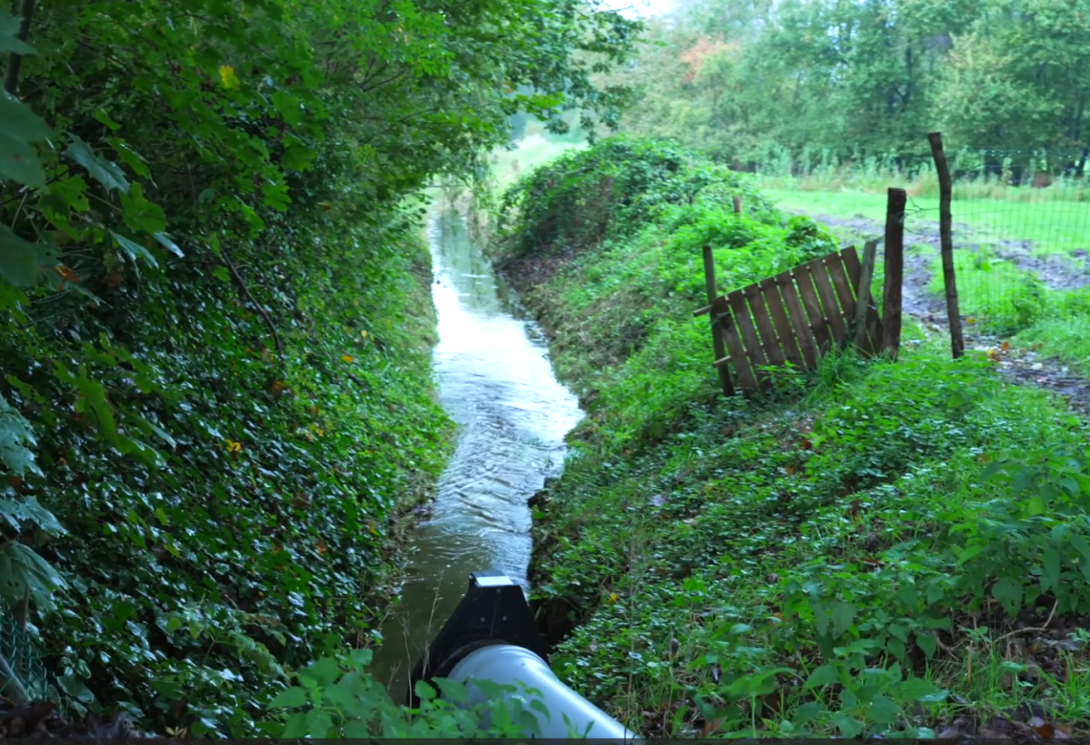The Chaamse Beken area is located south-east of the city of Breda in the province Noord-Brabant and consists of several small streams that merge into a single stream discharging into the river Mark. The catchment consists of a mosaic of agricultural fields, pastures, small villages and several larger forested zones. Here, the soil type is mainly sandy, with some local loam layers in the subsurface that may influence infiltration characteristics.
Case study area
50 km² catchment
Climate and soil
Atlantic central bio-region
Sandy soils
Sponge measure
Groundwater
(Removing drains, reducing the depth of ditches and streams, reducing irrigation withdrawals)
1. Challenge
For this case study the core objective is how to enhance the sponge functioning in a modern, optimized drained landscape. The goal is to improve the understanding of the system to increase groundwater levels, seepage, and stream discharge during summer. Some of the aspects that will be further explored include: stimulating groundwater recharge through infiltration and reducing drainage throughout the catchment.
2. Type of sponge measures
Removing drains, reducing depth of ditches and streams, increasing surface water levels, reducing irrigation abstraction from groundwater and surface water.
3. Monitoring
For this case study, long-term data and high-end groundwater and surface water modeling tools are already in place to assess the overall sponge function potential of this area. Efforts will focus on combining these data and tools to assess the effectivity and impact of sponge functioning measures during droughts and floods.
4. Stakeholders
Local stakeholders are particularly interested in the possibilities to mitigate droughts and prevent or reduce local flood risks, both in the rural and urbanized areas.
Local stakeholders include provincial government, drinking water company, and farmers.
5. Reference information
Water Authority Brabantse Delta (Case study owner)
